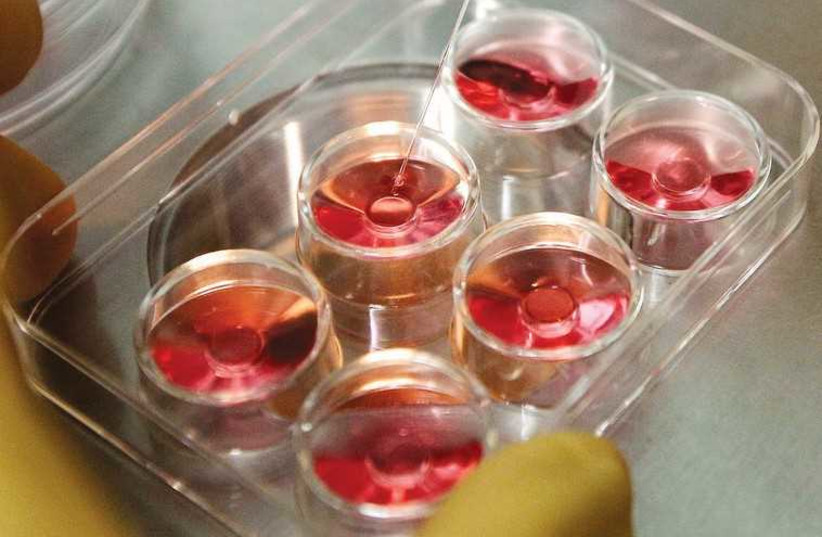After another period, more hormones, more hope and more disappointment, I start another round of fertility treatments. I have always been optimistic. At age 18 I wanted to be a mom and I was always in long relationships that seemed promising. From then until today, I have felt that it will happen at any moment.
When I started fertility treatment at age 37, my gynecologist sent me for blood tests and after I received the results I went to consult another gynecologist. The first doctor did urge me to freeze eggs, but the second doctor calmed me down and said he didn't understand why they told me to hurry. At the same time, I was diagnosed with hypothyroidism which was undiagnosed for a long time and when it was diagnosed, I wasn’t told that it causes poor ovarian reserve i.e. to have fewer eggs. If I had known, I would have acted differently.
Now I understand that I shouldn't have accepted the answer of one gynecologist and that I should have gotten several opinions, been more active, researched my situation and options in-depth, learned to decipher my tests and not trust the system to hand me the answers. When I look again at the blood tests I did then, I realize that I should have started immediately and not wait for the funding of my fertility treatments by the state, which only started when I reached the age of 40.5.
Why do we still live in a circle of silence?
One in eight couples in the United States, one in six couples worldwide and one in four couples in China face fertility problems. It’s estimated that between 50 and 80 million people in the world suffer from infertility problems and the figures are so high that the World Health Organization has stated that infertility is a global problem.

If millions of people face this problem, why is there still a circle of silence?
Why do I still feel ashamed in front of everyone, my family and friends? Why do I still feel guilty for not starting on time, for not reading the situation better, for not knowing? They told me to insist on my genes and not consider other options. Why didn't I talk about it with my mother, with friends who have kids and even with friends going through IVF?
The reason is that it is already easier to remain silent than to explain to everyone about every stage of the treatments and all the difficult emotions I’m dealing with.
Today, after 17 rounds of IVF, of hopes and disappointments, and after years of high-frequency hormone injections, I still can't decide to stop the train and the shock is huge, both physically and emotionally. In the beginning, I went through the process with my partner, who didn’t understand me and couldn’t support me. I decided to go through it alone, so I have no expectations of receiving support and there is no room for disappointment. I'm going through it alone and that's what it is.
When I was young, I could still talk about the process with friends, but today most of them have kids and the friends who face the same challenges also stay silent. What is there to talk about? another failed cycle? About the fact that a good friend has already entered the sixth month of her pregnancy but didn’t tell me because she wanted to protect me, even though I’m not a child and don’t need to be protected?
The cycle of silence was finally broken when I arrived at Assuta's meeting designed to prepare for the egg donation process. For the first time, I felt that I could have an honest and real conversation. Amazing women facing the same challenges, considering the same solutions and sharing information with each other.
A few weeks after Assuta's meeting, I arrived at a conference of Expecting, a digital platform that helps intended parents find all service providers for surrogacy and egg donation in one place, and I met an amazing team that does everything with a big heart and really understands the sensitive situation that intended parents are in.
What really moved me was that the conference started with excellent lectures by experts in the field of surrogacy and egg donation and continued with conversations that went on until the wee hours of the night. We all talked openly about the processes we’re going through and the possibilities, the challenges, things to watch out for and the best ways to start the process. We talked face to face, without hiding behind an anonymous internet persona. This is my story. This is my struggle.
Break the cycle of silence
I have been documenting my journey since day one. I take videos, write articles and collect the syringes in containers that stand as stark testimony to the journey I’m going through. But, I haven't published any documentation yet. Something in me still fears being treated as damaged goods. So I still maintain anonymity, but also continue to struggle daily.
My journey is long and complex, and there is no telling what awaits me at the end. In the meantime, I want to try to break the cycle of silence. Why are we ashamed? Why do we feel damaged? And why do we feel guilty? If I manage to solve these doubts, maybe my next column will no longer be anonymous.
